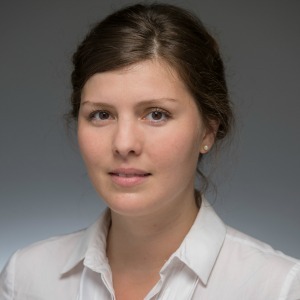Pinar Zorlutuna

Assistant Professor, Department of Aerospace and Mechanical Engineering, College of Engineering
Phone: 574-631-8543
Office: 143 Multidisciplinary Research Building
With the advances in tissue engineering research, now it is possible to produce healthy and diseased tissues called engineered model tissues, or on-chip tissues, with tunable parameters. Engineering model tissues is a promising new tool for the parametric study of complex events happening during the development and the pathology of organs. Dr. Zorlutuna’s research explores designing biomimetic environments for understanding and controlling cell behavior, and cell-cell and cell-environment interactions using tissue engineering, genetic engineering and micro- and nanotechnology, with particular emphasis on designing systems for co-culturing different cell types in a physiologically relevant manner for engineering complex tissues and for directing stem cell differentiation.
The ability to develop healthy and diseased tissues from the same cell source would be a powerful tool to understand disease pathophysiology. With the advances in tissue engineering research, now it is possible to produce healthy and diseased tissues, called engineered model tissues, using human cells. Engineering model tissues is a promising new tool for the parametric study of complex events happening during the development and the pathology of organs. These model tissues are not intended to understand the systemic effects concerning a particular phenomenon, but i) they enable investigating local events happening at a specific site, (i.e. in heart muscle tissue) in a much more controlled, isolated and high-throughput manner; not always are systemic influences favorable, as they may, in some cases, mask or even antagonize the actual local events. ii) They allow direct testing on human tissue-like structures, which would be invaluable for discovering preventive approaches or treatments. Such efforts could benefit the animal studies immensely given the fact that on average 1 out of 10 animal studies that make it to clinical trials actually pass the clinical trials and the discordance between animal and human studies is potentially due to the failure of animal models to mimic clinical disease adequately. Our goal is to study cellular communication during myocardial infarction using a tissue engineered human heart tissue model that will be designed and fabricated using hydrogel-based biomaterials, microfabrication techniques and human induced pluripotent stem cell-derived heart cells. Using microfluidics and microfabrication techniques, precise control over the microenvironmental conditions, such as fluid flow, bioactive factor gradients and spatial control of the heart cell types within the engineered tissue will be achieved. Such engineered myocardial tissue models would be very useful for investigating the effect of external and microenvironmental factors causing cardiovascular diseases (CVD), drug screening for treating or preventing them, and with the advances in induced pluripotent stem cells, possibly for examining genetic effects leading to CVD.
Would you like to support Prof. Zorlutuna's Research?